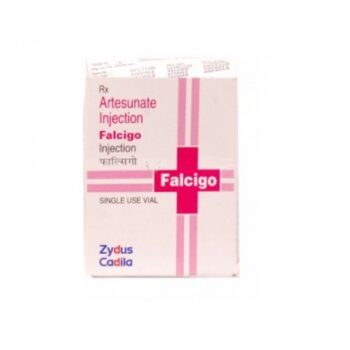Qutipin 100 mg
Qutipin 100 mg is a prescription medication containing quetiapine, an atypical antipsychotic used primarily to manage schizophrenia, bipolar disorder, and major depressive episodes as an adjunct therapy.
It works by balancing neurotransmitters like dopamine and serotonin in the brain, helping stabilize mood, reduce hallucinations, and improve thought clarity. Unlike typical sedatives, Qutipin supports long-term cognitive and emotional balance.
It’s often prescribed for its dual action on mood and sleep, making it a favored option in psychiatric care. Dosage should be adjusted by a physician, and sudden discontinuation should be avoided.
Uses
- Schizophrenia – Helps reduce hallucinations, delusions, and disorganized thinking.
- Bipolar Disorder – Treats both manic and depressive episodes.
- Major Depressive Disorder (MDD) – Used as an add-on treatment when other antidepressants are insufficient.
- Generalized Anxiety Disorder (off-label) – Sometimes prescribed for severe anxiety.
- Insomnia (off-label) – Occasionally used in low doses for sleep disturbances due to its sedative effect.
How to use Qutipin 100 mg ?
- Take as prescribed – Follow your doctor’s instructions carefully. Do not adjust the dose yourself.
- Usually taken once or twice daily – Can be taken with or without food.
- Swallow whole with water – Do not crush or chew the tablet.
- Take at the same time each day – This helps maintain steady levels in your body.
- Avoid alcohol and sedatives – They may increase drowsiness and side effects.
- Do not stop suddenly – Quetiapine must be tapered off under medical supervision to prevent withdrawal symptoms.
How Qutipin 100 mg works ?
Qutipin belongs to a class of medications called atypical antipsychotics. It works by modifying the activity of neurotransmitters in the brain, especially dopamine and serotonin, which are chemicals involved in mood, thought, and perception.
Here’s a simple breakdown of its action:
- Dopamine receptor blocking helps reduce psychotic symptoms like hallucinations and delusions.
- Serotonin modulation improves mood and emotional stability, helping with depression and anxiety.
- It also has a sedative effect, especially at lower doses, which can improve sleep and reduce agitation.
Overall, Qutipin helps rebalance brain chemistry, leading to clearer thinking, mood stabilization, and improved behavior.
Dosage
The dosage of Qutipin 100 mg depends on the medical condition being treated and the patient’s response. Treatment usually begins with a low dose, such as twenty-five to fifty milligrams per day, and is gradually increased under medical supervision.
For schizophrenia and bipolar disorder, the effective dose often ranges between three hundred to eight hundred milligrams daily, divided into one or two doses.
For depression (as an add-on treatment), the dose may be between fifty to three hundred milligrams, usually taken at bedtime. older patients may require a lower starting dose to minimize side effects.
Benefits of Qutipin 100 mg
- Reduces psychotic symptoms – Helps manage hallucinations, delusions, and disorganized thinking in schizophrenia.
- Stabilizes mood – Effective in both manic and depressive episodes of bipolar disorder.
- Improves sleep – Has sedative properties that aid with insomnia, especially in mood disorders.
- Enhances emotional balance – Helps reduce irritability, anxiety, and agitation.
- Supports depression treatment – Used as an add-on therapy when antidepressants alone are not enough.
- Improves overall functioning – Enhances focus, motivation, and daily activity management.
- Fewer movement side effects – Compared to older antipsychotics, it causes fewer extrapyramidal symptoms.
Side Effects of Qutipin 100 mg
- Drowsiness or sedation – Very common, especially at the start of treatment.
- Dry mouth – A frequent and mild side effect.
- Dizziness or lightheadedness – Especially when standing up too quickly (orthostatic hypotension).
- Weight gain – Can occur with long-term use.
- Increased appetite – Often contributes to weight changes.
- Constipation – Due to its sedative effect on the digestive system.
- Fatigue or tiredness – Common in early stages of use.
- Headache – Occasionally reported.
- Changes in cholesterol or blood sugar levels – Monitoring may be needed.
- Tremors or restlessness – Less common, but possible.
Serious (but rare) side effects:
- Tardive dyskinesia – Involuntary movements.
- Neuroleptic malignant syndrome (NMS) – A rare but serious condition.
- Seizures – Rare, but possible.
- Suicidal thoughts – Especially in young adults (monitor closely).
Precautions
- Follow doctor’s instructions strictly – Do not adjust the dose or stop the medication suddenly without medical advice.
- Avoid alcohol and sedatives – They can increase drowsiness and other side effects.
- Use caution in the older – Especially those with dementia-related psychosis, as it may increase the risk of death.
- Monitor blood sugar and cholesterol – Quetiapine can affect metabolism, increasing the risk of diabetes and lipid changes.
- Inform your doctor of medical history – Especially if you have heart disease, liver problems, seizures, low blood pressure, or glaucoma.
- May cause dizziness or drowsiness – Avoid driving or operating heavy machinery until you know how it affects you.
- Pregnancy and breastfeeding – Use only if clearly needed; discuss risks with your doctor.
- Risk of suicidal thoughts – Particularly in young adults; regular monitoring is important.
- Stay hydrated – Especially during hot weather or exercise, as Qutipin may impair your body’s ability to regulate temperature.
- Regular medical check-ups – Blood pressure, weight, blood sugar, and mental health should be monitored regularly during treatment.
Frequently asked questions
What is Qutipin 100 mg used for?
Qutipin 100 mg is primarily used to treat schizophrenia, bipolar disorder (manic and depressive episodes), and as an add-on treatment for major depressive disorder. It helps stabilize mood, reduce psychotic symptoms, and improve sleep.
How does Qutipin 100 mg work?
Qutipin works by balancing chemicals in the brain, especially dopamine and serotonin. This helps improve mood, reduce hallucinations, and stabilize emotions.
Is Qutipin 100 mg a sleeping pill?
No, but it has sedative effects and may help with sleep in people with mental health disorders. It should not be used solely as a sleeping aid unless prescribed.
Can I take Qutipin 100 mg with other medications?
Some medications may interact with Qutipin, such as sedatives, blood pressure drugs, or anticonvulsants. Always inform your doctor about all medicines you are taking.
Is it safe during pregnancy or breastfeeding?
Use during pregnancy or breastfeeding should only be done under close medical supervision, as the drug may pose risks to the baby.
How long does it take for Qutipin to work?
Some effects, like sedation, may appear within a few hours. Full therapeutic benefits for mood or psychotic symptoms may take 1 to 2 weeks, sometimes longer.
Can Qutipin be used in children?
Qutipin is not generally recommended for children unless specifically prescribed by a psychiatrist with experience in pediatric use.
Conclusion
Qutipin 100 mg is a versatile medication primarily used to treat schizophrenia, bipolar disorder, and major depressive disorder. It works by stabilizing mood and balancing brain chemicals, offering relief from psychotic symptoms and emotional instability.
While generally safe when prescribed, it requires careful monitoring for side effects, especially in older patients and those with pre-existing conditions.












Reviews
There are no reviews yet.